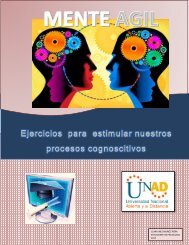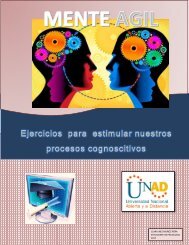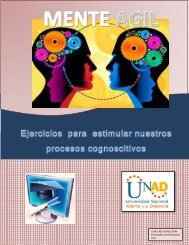S6 P. Green McDonald et al. / Brain, Behavior, and Immunity 30 (2013) S1–S9 pathways must both be targeted. Understanding whether narrow or broad targeting of therapies is clinically indicated is critical in developing successful pharmacologic approaches. Behavioral interventions tend to be ‘broad spectrum’’- targeting many overlapping biobehavioral pathways; future research on behavioral interventions may benefit from analysis of which molecular pathways are active. Future research will also benefit from parsing out effects of different biobehavioral states – e.g. stress, depression, social isolation – to determine if there is one final common pathway, or to what extent there are discrete biological signatures of these different psychological constructs. Molecular signatures of positive constructs also need further investigation. For example, does resilience just mean less sympathetic activation or less hormonal and inflammatory responsivity to stress, or does it mean greater parasympathetic tone, or differential signaling of pathways such as those involving oxytocin or dopamine? Likewise, it is not known whether stress factors act in a relatively linear dose–response fashion or whether there are thresholds for stress/depression/social isolation that determine physiological trajectories that will influence the clinical course of cancer. These kinds of data will help us better understand who will most benefit from behavioral or pharmacological interventions to reduce adrenergic signaling or stress response states - for example, what levels of stress/distress are necessary at the outset for an intervention to make a difference. Moreover, the use of discrete interventions is useful for mechanistic research purposes, but it is possible that multifaceted total lifestyle interventions that address stress factors, as well as nutritional and exercise lifestyle components, will be necessary to profoundly impact cancer growth. To date, research on multimodal interventions remains quite limited. Additionally, the effects of biobehavioral pathways on recovery from specific cancer treatments such as HSCT, adoptive immunotherapy, surgical recovery, are important frontiers for future work. Understanding tumor and treatment effects on the central nervous system are equally important. As reported by some of the papers in this volume, we are just beginning to understand the relevant biology in post-chemotherapy fatigue and cognitive difficulties – this type of mechanistic understanding is critical before new treatments can be developed and tested. Future directions also include determination of what are the most important intermediate outcome variables for biobehavioral cancer research. In addition to overall survival and progressionfree survival, to what extent are gene signatures, metabolomics, and epigenetic changes important outcomes for this work? The research in this volume points to the dramatic discoveries that have been made in the last decade to define this field. Future research holds promise for discovery of novel biobehavioral signaling pathways that are relevant to cancer and a greater understanding of behavioral, pharmacologic, and complementary interventions that target these mechanisms. In conclusion, we would be remiss if we did not thank lead authors and their authorship teams for contributing scientific advances relevant to this volume. These individuals and many others have worked quite tirelessly to improve methodological rigor, establish causation as appropriate, collaborate in the spirit of transdisciplinary team science, and move between different research designs to test and confirm experimental and clinical findings. We thank the many scholars who engaged in the peer review process to vet the invited mini-reviews and empirical papers that comprise this supplement. We acknowledge the inspiration and contributions of the National <strong>Cancer</strong> Institute Network on Biobehavioral Pathways in <strong>Cancer</strong> 6 and the invaluable support of 6 See http://cancercontrol.cancer.gov/brp/bbpsb/ncintwk-biopthwys.html. the National <strong>Cancer</strong> Institute Division of <strong>Cancer</strong> Control and Population Sciences. Lastly, we thank the Brain, Behavior, and Immunity senior editorial staff for their support of this special issue. Conflict of interest The authors of this manuscript have nothing to declare. Acknowledgments Nicole Saiontz provided editorial support and Kate McNeil provided administrative management for the special issue. The National <strong>Cancer</strong> Institute Network on Biobehavioral Pathways in <strong>Cancer</strong> provided scientific consultation for the development of the Figure. Figure illustration by Ethan Tyler. Figure design by Will Bramlett. References Adler, N.E., Stewart, J., 2010. Preface to the biology of disadvantage: socioeconomic status and health. Ann. N.Y. Acad. Sci. 1186, 1–4. Albini, A., Sporn, M.B., 2007. The tumour microenvironment as a target for chemoprevention. Nat. Rev. <strong>Cancer</strong> 7, 139–147. Andersen, B.L., Farrar, W.B., Golden-Kreutz, D., Kutz, L.A., MacCallum, R., Courtney, M.E., Glaser, R., 1998. Stress and immune responses after surgical treatment for regional breast cancer. J. Natl. <strong>Cancer</strong> Inst. 90, 30–36. Andersen, B.L., Kiecolt-Glaser, J.K., Glaser, R., 1994. A biobehavioral model of cancer stress and disease course. Am. Psychol. 49, 389–404. Antoni, M.H., 2003. Psychoneuroendocrinology and psychoneuroimmunology of cancer: plausible mechanisms worth pursuing? Brain Behav. Immun. 17 (Suppl. 1), S84–S91. Antoni, M.H., 2012. Psychosocial intervention effects on adaptation, disease course and biobehavioral processes in cancer. Brain Behav. Immun., http://dx.doi.org/ 10.1016/j.bbi.2012.05.009. Antoni, M.H., Lechner, S., Diaz, A., Vargas, S., Holley, H., Phillips, K., McGregor, B., Carver, C.S., Blomberg, B., 2009. Cognitive behavioral stress management effects on psychosocial and physiological adaptation in women undergoing treatment for breast cancer. Brain Behav. Immun. 23, 580–591. Antoni, M.H., Lutgendorf, S.K., Blomberg, B., Carver, C.S., Lechner, S., Diaz, A., Stagl, J., Arevalo, J.M., Cole, S.W., 2012. Cognitive-behavioral stress management reverses anxiety-related leukocyte transcriptional dynamics. Biol. Psychiatry 1, 366–372. Antoni, M.H., Lutgendorf, S.K., Cole, S.W., Dhabhar, F.S., Sephton, S.E., McDonald, P.G., Stefanek, M., Sood, A.K., 2006. The influence of bio-behavioural factors on tumour biology: pathways and mechanisms. Nat. Rev. <strong>Cancer</strong> 6, 240–248. Armaiz-Pena, G.N., Cole, S.W., Lutgendorf, S.K., Sood, A.K., 2012. Neuroendocrine influences on cancer progression. Brain Behav. Immun., http://dx.doi.org/ 10.1016/j.bbi.2012.06.005. Badino, G.R., Novelli, A., Girardi, C., Di Carlo, F., 1996. Evidence for functional betaadrenoceptor subtypes in CG-5 breast cancer cell. Pharmacol. Res. 33, 255–260. Betof, A.S., Dewhirst, M.W., Jones, L.W., 2012. Effects and potential mechanisms of exercise training on cancer progression: a translational perspective. Brain Behav. Immun. Bovbjerg, D.H., Valdimarsdottir, H., 1993. Familial cancer, emotional distress, and low natural cytotoxic activity in healthy women. Ann. Oncol. 4, 745–752. Bower, J.E., 2012. Fatigue, brain, behavior, and immunity: summary of the 2012 Named Series on fatigue. Brain Behav. Immun. 26, 1220–1223. Bower, J.E., Ganz, P.A., Irwin, M.R., Kwan, L., Breen, E.C., Cole, S.W., 2011. Inflammation and behavioral symptoms after breast cancer treatment: do fatigue, depression, and sleep disturbance share a common underlying mechanism? J. Clin. Oncol. 29, 3517–3522. Bower, J.E., Lamkin, D.M., 2012. Inflammation and cancer-related fatigue: mechanisms, contributing factors, and treatment implications. Brain Behav. Immun., http://dx.doi.org/10.1016/j.bbi.2012.06.011. Boyce, W.T., Sokolowski, M.B., Robinson, G.E., 2012. Toward a new biology of social adversity. Proc. Natl. Acad. Sci. 109, 17143–17148. Braithwaite, D., Moore, D.H., Satariano, W.A., Kwan, M.L., Hiatt, R.A., Kroenke, C., Caan, B.J., 2012. Prognostic impact of comorbidity among long-term breast cancer survivors: results from the LACE study. <strong>Cancer</strong> Epidemiol. Biomarkers Prev. 21, 1115–1125. Cao, L., During, M.J., 2012. What is the brain-cancer connection? Annu. Rev. Neurosci. 35, 331–345. Cao, L., Liu, X., Lin, E.J., Wang, C., Choi, E.Y., Riban, V., Lin, B., During, M.J., 2010. Environmental and genetic activation of a brain-adipocyte BDNF/leptin axis causes cancer remission and inhibition. Cell 142, 52–64. Castano, Z., Tracy, K., McAllister, S.S., 2011. The tumor macroenvironment and systemic regulation of breast cancer progression. Int. J. Dev. Biol. 55, 889–897. Chang, C.M., Su, Y.C., Lai, N.S., Huang, K.Y., Chien, S.H., Chang, Y.H., Lian, W.C., Hsu, T.W., Lee, C.C., 2012. The combined effect of individual and neighborhood socioeconomic status on cancer survival rates. PLoS One 7, e44325.
P. Green McDonald et al. / Brain, Behavior, and Immunity 30 (2013) S1–S9 S7 Chida, Y., Hamer, M., Wardle, J., Steptoe, A., 2008. Do stress-related psychosocial factors contribute to cancer incidence and survival? Nat. Clin. Pract. Oncol. 5, 466–475. Choi, M., Craft, B., Geraci, S.A., 2011. Surveillance and monitoring of adult cancer survivors. Am. J. Med. 124, 598–601. Cohen, L., Cole, S.W., Sood, A.K., Prinsloo, S., Kirschbaum, C., Arevalo, J.M., Jennings, N.B., Scott, S., Vence, L., Wei, Q., Kentor, D., Radvanyi, L., Tannir, N., Jonasch, E., Tamboli, P., Pisters, L., 2012. Depressive symptoms and cortisol rhythmicity predict survival in patients with renal cell carcinoma: role of inflammatory signaling. PLoS One 7, e42324. Cohen, S., Rabin, B.S., 1998. Psychologic stress, immunity, and cancer. J. Natl. <strong>Cancer</strong> Inst. 90, 3–4. Colditz, G.A., Wei, E.K., 2012. Preventability of cancer: the relative contributions of biologic and social and physical environmental determinants of cancer mortality. Annu. Rev. Public Health 33, 137–156. Colditz, G.A., Wolin, K.Y., Gehlert, S., 2012. Applying what we know to accelerate cancer prevention. Sci. Transl. Med 4, 127rv4. Cole, S.W., 2010. Elevating the perspective on human stress genomics. Psychoneuroendocrinology 35, 955–962. Cole, S.W., 2013. Nervous system regulation of the cancer genome. Brain Behav. Immun., http://dx.doi.org/10.1016/j.bbi.2012.11.008. Cole, S.W., Sood, A.K., 2012. Molecular Pathways: beta-adrenergic signaling in cancer. Clin. <strong>Cancer</strong> Res. 18, 1201–1206. Cole, S.W., Yan, W., Galic, Z., Arevalo, J., Zack, J.A., 2005. Expression-based monitoring of transcription factor activity: the TELiS database. Bioinformatics 21, 803–810. Costanzo, E.S., Juckett, M.B., Coe, C.L., 2012. Biobehavioral influences on recovery following hematopoietic stem cell transplantation. Brain Behav. Immun., http:// dx.doi.org/10.1016/j.bbi.2012.07.005. Dantzer, R., Kelley, K.W., 2007. Twenty years of research on cytokine-induced sickness behavior. Brain Behav. Immun. 21, 153–160. Dantzer, R., Meagher, M.W., Cleeland, C.S., 2012. Translational approaches to treatment-induced symptoms in cancer patients. Nat. Rev. Clin. Oncol. 9, 414– 426. Dantzer, R., O’Connor, J.C., Freund, G.G., Johnson, R.W., Kelley, K.W., 2008. From inflammation to sickness and depression: when the immune system subjugates the brain. Nat. Rev. Neurosci. 9, 46–56. Dell, H., 2006. Milestones 1: observations from a ploughman. Nat. Rev. <strong>Cancer</strong> 6, S7. Dettenborn, L., James, G.D., Berge-Landry, H., Valdimarsdottir, H.B., Montgomery, G.H., Bovbjerg, D.H., 2005. Heightened cortisol responses to daily stress in working women at familial risk for breast cancer. Biol. Psychol. 69, 167–179. DeVita Jr., V.T., Rosenberg, S.A., 2012. Two hundred years of cancer research. N. Engl. J. Med. 366, 2207–2214. Eheman, C., Henley, S.J., Ballard-Barbash, R., Jacobs, E.J., Schymura, M.J., Noone, A.M., Pan, L., Anderson, R.N., Fulton, J.E., Kohler, B.A., Jemal, A., Ward, E., Plescia, M., Ries, L.A., Edwards, B.K., 2012. Annual Report to the Nation on the status of cancer, 1975–2008, featuring cancers associated with excess weight and lack of sufficient physical activity. <strong>Cancer</strong> 118, 2338–2366. Engler, H., Bailey, M.T., Engler, A., Sheridan, J.F., 2004. Effects of repeated social stress on leukocyte distribution in bone marrow, peripheral blood and spleen. J. Neuroimmunol. 148, 106–115. Esnaola, N.F., Ford, M.E., 2012. Racial differences and disparities in cancer care and outcomes: where’s the rub? Surg. Oncol. Clin. N. Am. 21, 417–437. Evans, G.W., Kim, P., 2010. Multiple risk exposure as a potential explanatory mechanism for the socioeconomic status–health gradient. Annals of the New York Academy of Sciences 1186, 174–189. Farrell, A., 2006. Milestone 7: bloodlines. Nat. Rev. <strong>Cancer</strong> 6, S11. Fidler, I.J., 2003. The pathogenesis of cancer metastasis: the ‘seed and soil’ hypothesis revisited. Nat. Rev. <strong>Cancer</strong> 3, 453–458. Folkman, J., 1971. Tumor angiogenesis: therapeutic implications. N. Engl. J. Med. 285, 1182–1186. Ganz, P.A., Bower, J.E., Kwan, L., Castellon, S.A., Silverman, D.H., Geist, C., Breen, E.C., Irwin, M.R., Cole, S.W., 2012. Does tumor necrosis factor-alpha (TNF-alpha) play a role in post-chemotherapy cerebral dysfunction? Brain Behav. Immun., http:// dx.doi.org/10.1016/j.bbi.2012.07.015. Ganzel, B.L., Morris, P.A., Wethington, E., 2010. Allostasis and the human brain: integrating models of stress from the social and life sciences. Psychol. Rev. 117, 134–174. Gehlert, S., Sohmer, D., Sacks, T., Mininger, C., McClintock, M., Olopade, O., 2008. Targeting health disparities: a model linking upstream determinants to downstream interventions. Health Aff. 27, 339–349. Giese-Davis, J., Collie, K., Rancourt, K.M., Neri, E., Kraemer, H.C., Spiegel, D., 2011. Decrease in depression symptoms is associated with longer survival in patients with metastatic breast cancer: a secondary analysis. J. Clin. Oncol. 29, 413–420. Glaser, R., Kiecolt-Glaser, J.K., 2005. Stress-induced immune dysfunction: implications for health. Nat. Rev. Immunol. 5, 243–251. Gold, S.M., Zakowski, S.G., Valdimarsdottir, H.B., Bovbjerg, D.H., 2003. Stronger endocrine responses after brief psychological stress in women at familial risk of breast cancer. Psychoneuroendocrinology 28, 584–593. Gonda, T.A., Tu, S., Wang, T.C., 2009. Chronic inflammation, the tumor microenvironment and carcinogenesis. Cell Cycle 8, 2005–2013. Hanahan, D., Weinberg, R.A., 2000. The hallmarks of cancer. Cell 100, 57–70. Hanahan, D., Weinberg, R.A., 2011. Hallmarks of cancer: the next generation. Cell 144, 646–674. Hara, M.R., Kovacs, J.J., Whalen, E.J., Rajagopal, S., Strachan, R.T., Grant, W., Towers, A.J., Williams, B., Lam, C.M., Xiao, K., Shenoy, S.K., Gregory, S.G., Ahn, S., Duckett, D.R., Lefkowitz, R.J., 2011. A stress response pathway regulates DNA damage through beta2-adrenoreceptors and beta-arrestin-1. Nature 477, 349–353. Haroon, E., Raison, C.L., Miller, A.H., 2012. Psychoneuroimmunology meets neuropsychopharmacology: translational implications of the impact of inflammation on behavior. Neuropsychopharmacology 37, 137–162. Hart, I.R., Fidler, I.J., 1980. <strong>Cancer</strong> invasion and metastasis. Q. Rev. Biol. 55, 121–142. Hermes, G.L., McClintock, M.K., 2008. Isolation and the timing of mammary gland development, gonadarche, and ovarian senescence. Implications for mammary tumor burden. Dev. Psychobiol. 50, 353–360. Hiatt, R.A., Breen, N., 2008. The social determinants of cancer: a challenge for transdisciplinary science. Am. J Prev. Med. 35, S141–S150. Holt-Lunstad, J., Smith, T.B., Layton, J.B., 2010. Social relationships and mortality risk: a meta-analytic review. PLoS Med. 7, e1000316. Hursting, S.D., Digiovanni, J., Dannenberg, A.J., Azrad, M., Leroith, D., Demark- Wahnefried, W., Kakarala, M., Brodie, A., Berger, N.A., 2012. Obesity, energy balance, and cancer: new opportunities for prevention. <strong>Cancer</strong> Prev. Res. 5, 1260–1272. Irwin, M.R., Cole, S.W., 2011. Reciprocal regulation of the neural and innate immune systems. Nat. Rev. Immunol. 11, 625–632. Irwin, M.R., Olmstead, R.E., Ganz, P.A., Haque, R., 2012. Sleep disturbance, inflammation and depression risk in cancer survivors. Brain Behav. Immun, http://dx.doi.org/10.1016/j.bbi.2012.05.002. Joyce, J.A., 2005. Therapeutic targeting of the tumor microenvironment. <strong>Cancer</strong> Cell 7, 513–520. Joyce, J.A., Pollard, J.W., 2009. Microenvironmental regulation of metastasis. Nat. Rev. <strong>Cancer</strong> 9, 239–252. Karelina, K., DeVries, A.C., 2011. Modeling social influences on human health. Psychosom. Med. 73, 67–74. Kelley, K.W., Bluthe, R.M., Dantzer, R., Zhou, J.H., Shen, W.H., Johnson, R.W., Broussard, S.R., 2003. Cytokine-induced sickness behavior. Brain Behav. Immun.. 17 (Suppl. 1), S112–S118. Kelly-Irving, M., Mabile, L., Grosclaude, P., Lang, T., Delpierre, C., 2012. The embodiment of adverse childhood experiences and cancer development: potential biological mechanisms and pathways across the life course. Int. J. Public Health. Kesler, S., Janelsins, M., Koovakkattu, D., Palesh, O., Mustian, K., Morrow, G., Dhabhar, F.S., 2012. Reduced hippocampal volume and verbal memory performance associated with interleukin-6 and tumor necrosis factor-alpha levels in chemotherapy-treated breast cancer survivors. Brain Behav. Immun., http://dx.doi.org/10.1016/j.bbi.2012.05.017. Kesler, S.R., Kent, J.S., O’Hara, R., 2011. Prefrontal cortex and executive function impairments in primary breast cancer. Arch. Neurol. 68, 1447–1453. Kiecolt-Glaser, J.K., Glaser, R., 1999. Psychoneuroimmunology and cancer: fact or fiction? Eur. J. <strong>Cancer</strong> 35, 1603–1607. Kiecolt-Glaser, J.K., Gouin, J.-P., Hantsoo, L., 2010. Close relationships, inflammation, and health. Neurosci. Biobehav. Rev. 35, 33–38. Kiecolt-Glaser, J.K., McGuire, L., Robles, T.F., Glaser, R., 2002. Emotions, morbidity, and mortality: new perspectives from psychoneuroimmunology. Annu. Rev. Psychol. 53, 83–107. Lai, P., Rabinowich, H., Crowley-Nowick, P.A., Bell, M.C., Mantovani, G., Whiteside, T.L., 1996. Alterations in expression and function of signal-transducing proteins in tumor-associated T and natural killer cells in patients with ovarian carcinoma. Clin. <strong>Cancer</strong> Res. 2, 161–173. Lamkin, D.M., Lutgendorf, S.K., Lubaroff, D., Sood, A.K., Beltz, T.G., Johnson, A.K., 2011. <strong>Cancer</strong> induces inflammation and depressive-like behavior in the mouse: modulation by social housing. Brain Behav. Immun. 25, 555–564. Land, L.H., Dalton, S.O., Jensen, M.B., Ewertz, M., 2012. Impact of comorbidity on mortality: a cohort study of 62,591 Danish women diagnosed with early breast cancer, 1990–2008. Breast <strong>Cancer</strong> Res. Treat. 131, 1013–1020. Langley, R.R., Fidler, I.J., 2007. Tumor cell-organ microenvironment interactions in the pathogenesis of cancer metastasis. Endocr. Rev. 28, 297–321. Levy, S., Herberman, R., Lippman, M., d’Angelo, T., 1987. Correlation of stress factors with sustained depression of natural killer cell activity and predicted prognosis in patients with breast cancer. J. Clin. Oncol. 5, 348–353. Levy, S.M., Herberman, R.B., Maluish, A.M., Schlien, B., Lippman, M., 1985. Prognostic risk assessment in primary breast cancer by behavioral and immunological parameters. Health Psychol. 4, 99–113. Levy, S.M., Herberman, R.B., Whiteside, T., Sanzo, K., Lee, J., Kirkwood, J., 1990. Perceived social support and tumor estrogen/progesterone receptor status as predictors of natural killer cell activity in breast cancer patients. Psychosom. Med. 52, 73–85. Lipshultz, S.E., Landy, D.C., Lopez-Mitnik, G., Lipsitz, S.R., Hinkle, A.S., Constine, L.S., French, C.A., Rovitelli, A.M., Proukou, C., Adams, M.J., Miller, T.L., 2012. Cardiovascular status of childhood cancer survivors exposed and unexposed to cardiotoxic therapy. J. Clin. Oncol. 30, 1050–1057. Lotzova, E., Savary, C.A., Freedman, R., Bowen, J.M., 1986. Natural immunity against ovarian tumors. Comp. Immunol. Microbiol. Infect. Dis. 9, 269–275. Lotzova, E., Savary, C.A., Freedman, R.S., Bowen, J.M., 1984. Natural killer cell cytotoxic potential of patients with ovarian carcinoma and its modulation with virus-modified tumor cell extract. <strong>Cancer</strong> Immunol. Immunother. 17, 124–129. Lutgendorf, S.K., Cole, S., Costanzo, E., Bradley, S., Coffin, J., Jabbari, S., Rainwater, K., Ritchie, J.M., Yang, M., Sood, A.K., 2003. Stress-related mediators stimulate vascular endothelial growth factor secretion by two ovarian cancer cell lines. Clin. <strong>Cancer</strong> Res. 9, 4514–4521. Lutgendorf, S.K., De Geest, K., Bender, D., Ahmed, A., Goodheart, M.J., Dahmoush, L., Zimmerman, M.B., Penedo, F.J., Lucci, J.A., Ganjei-Azar, P., Thaker, P.H., Mendez,





